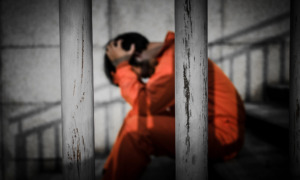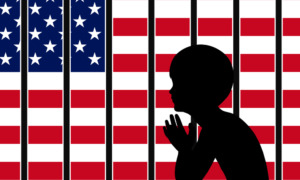Funding
Action:
Engaging Law Enforcement to Reduce Juvenile Crime, Victimization, and
Delinquency: For nonprofits or public agencies to help police departments implement evidence-based strategies for policing youth. $750,000 award, looks like a lot of deliverables are being asked for too. Deadline is May 19.
Support for Conferences on Juvenile Justice: Like this competition. OJJDP will give out about $40,000 to help pay for conferences for organizations that “provide program activities in support of OJJDP’s mission.” Listed priority areas include substance abuse, juvenile and family drug
courts, maltreatment, abuse and crimes against children. Deadline is May 17, and all grants will be given out by Sept. 30.
Youth Gang Prevention Program: Funds agencies or nonprofits in communities that have conducted a gang assessment to add specific components to an existing comprehensive gang prevention initiative. About 10 awards in the ballpark of $325,000 will be made. Deadline is May 20.
Juvenile Drug Courts Mentoring and Support Services: Have to be an existing drug court, awards are up to $300,000. Deadline is May 19.
Attorney General’s Children Exposed to Violence Demonstration Program: AG Eric Holder’s project to fund efforts to shield youth from violence in the home and community, and from the deleterious effects of violence on their behavior. Some unit of government must serve as a lead applicant, but it is encouraged that proposals include partnerships with nonprofits and community-based organizations. Applicants must demonstrate that they operate in an area with youth who are frequently exposed to violence. Deadline is June 1; Justice will select up to eight communities and fund each project at about $320,000 over two years.
Tribal Youth National Mentoring Program: Awards of about $2 million to expand and replicate community efforts to connect youth on reservations with mentors. Only tribal governments and “national organizations” are eligible.
Research:
Mentoring Research Best Practices: Several awards between $500,000 and $1 million that will fund research on what models and approaches work when it comes to mentoring youth who are at risk of becoming JJ involved or already are. Have to say, it’s a little crazy to see this a couple years after the bulk of OJJDP discretionary money started going to mentoring. More than $200 million in juvenile justice funds has flowed out to mentoring projects, and now it’s time to figure out what works? Deadline is May 20.
Research on Policing: Thought this was worth mentioning for groups that might want to research racial disparities and juveniles, since the solicitation says that the National Institute of Justice is interested in proposals that examine “how strategies or organizational changes in police
accountability systems impact citizen perceptions of police legitimacy.” Awards will likely be in the $500,000 neighborhood; deadline is May 3.
Research and Evaluation on Children Exposed to Family Violence: $1 million for up to four awards; deadline is June 1.
Evaluation of the Attorney General’s Children Exposed to Violence Demonstration
Program: The previous solicitation studies general impact of such violence on youth, this one is a $500,000 grant to do the first phase of evaluation of Holder’s demonstration project. Deadline is June 1.
Headlines
***Excellent work by reporter Steve Mills and The Chicago Tribune on this story about Illinois juveniles whose stay in lock-up is extended because nobody wants to take them back. Almost 10 percent of the youths in state facilities technically have completed their sentence. You can bet Illinois is not the only place where this is happening; anyone in a state with similar problems can get in touch with JJ Today, we’d love to know how prevalent this is.
***Florida child welfare authorities can no longer seek to jail kids who run away from foster care, reports the inimitable Carol Marbin Miller. This is a status offenses for which many youths around the country are locked up; a judge orders them not to run away from foster care or a group home, and when they do, they are in violation of the court order.
***In the get-tough 1990s, Wisconsin changed its laws so that 17 year-olds would head to adult court. Now, the state is thinking about re-raising the age of majority to 18, reports the Green Bay Press Gazette’s Andy Thompson.
***Great article by Tennessean reporter Clay Carey on the debate over including some juveniles on the sex offender registry in Tennessee.





























